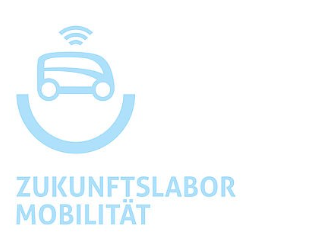The technical development of wireless and mobile communication enables numerous novel applications that improve traffic efficiency and traffic safety. Vehicles generate FCD (Floating Car Data) that is distributed and aggregated
via mobile communications in order to estimate the traffic situation and to enable a dynamic, traffic-dependent routing.
With Wifi-based ITS-G5 technology, vehicles periodically transmit CAMs (Cooperative Awareness Messages) to vehicles in their local vicinity. These CAMs comprise position, heading, and speed of the transmitting vehicle and
enable the receiving vehicle to detect and avoid potentially hazardous trajectories. This provides the basis for cooperative driver assistance systems like cooperative lane change, intersection, or traffic jam assistants.
In case of road users that are not equipped, specifically vulnerable road users like cyclists and pedestrians, a CAM-based system cannot achieve a full environment recognition due to missing data. A remedy are CPMs (Collective
Perception Messages), that deliver sensor information, e.g., of radar, lidar, and video sensors, of a vehicle to other road users. These sensor information, that are gathered by different vehicles, need to be fused accordingly
(track-to-track fusion) to collectively achieve a more precise and more complete recognition of the environment. In other words, the goal is to see through the eyes of others – e.g., to detect persons that are possibly
hidden by other vehicles.
Förderprogramm
VolkswagenStiftung, Ministerium für Wissenschaft und Kultur
Projektpartner
- Zukunftslabor-Sprecher: Prof. Dr.-Ing. Thomas Vietor
- TU Braunschweig – Institut für Konstruktionstechnik
- Niedersächsisches Forschungszentrum Fahrzeugtechnik (NFF)
- Carl von Ossietzky Universität Oldenburg, Abteilung Hybride Systeme
- Deutsches Zentrum für Luft- und Raumfahrt (DLR), Institut für Verkehrssystemtechnik (Braunschweig) / Institut Systems Engineering für zukünftige Mobilität (Oldenburg)
- Georg-August-Universität Göttingen, Arbeitsgruppe Data Fusion
- Hochschule Osnabrück, Institut für Produktion und Logistik
- Leibniz Universität Hannover, Forschungszentrum L3S / Institut für Kartographie und Geoinformatik
- OFFIS Institut für Informatik, FuE-Bereich Society
- Ostfalia Hochschule für angewandte Wissenschaften – Hochschule Braunschweig/Wolfenbüttel, Fachgruppe Regelungstechnik und Fahrzeugmechatronik / Institut für verteilte Systeme
- Technische Universität Braunschweig, Institut für Automobilwirtschaft und Industrielle Produktion / Institut für Softwaretechnik und Fahrzeuginformatik
- Technische Universität Clausthal, Institut für Informatik / Institute for Software and Systems Engineering




